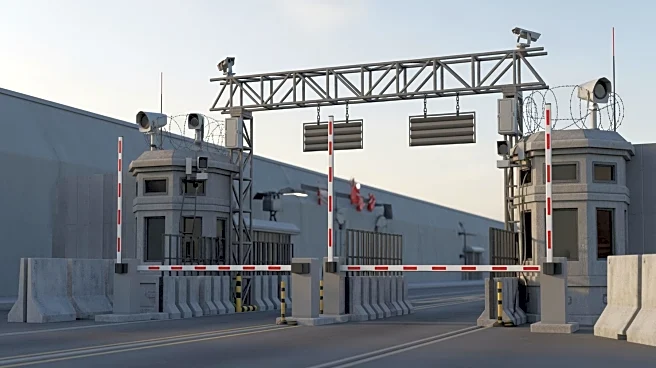What's Happening?
In the fall of 2025, reports emerged suggesting that several officials from President Trump's administration were relocating to military bases in or near Washington, D.C., due to security concerns. This
claim was initially reported by The Atlantic and The New York Times on October 30, 2025, citing anonymous sources. The reports named several officials, including Secretary of Homeland Security Kristi Noem, Secretary of State Marco Rubio, and Secretary of Defense Pete Hegseth, among others. Snopes confirmed that Kristi Noem had moved to a Coast Guard facility, but could not independently verify the relocation of other officials. The reports indicated that these moves were prompted by security threats, with some officials facing protests near their residences.
Why It's Important?
The relocation of high-ranking government officials to military bases underscores the heightened security concerns within the current political climate. This move reflects the increasing threats faced by public officials, potentially due to the polarized political environment. The decision to relocate to military bases, typically reserved for military personnel, highlights the severity of these threats and raises questions about the safety and security of government officials. This situation could impact public perception of safety in political roles and may influence future security protocols for government officials.
What's Next?
Further responses from the White House, Department of State, and Department of Defense are awaited to confirm the details of these relocations. The situation may prompt discussions on enhancing security measures for government officials and could lead to policy changes regarding their housing and protection. Additionally, the public and political leaders may react to these developments, potentially influencing future security strategies.
Beyond the Headlines
The relocation of officials to military bases may have broader implications for civil-military relations, as it blurs the lines between civilian and military domains. This trend could set a precedent for future administrations, affecting how security is managed for high-profile government figures. It also raises ethical questions about the use of military resources for civilian protection and the potential impact on military housing availability.









